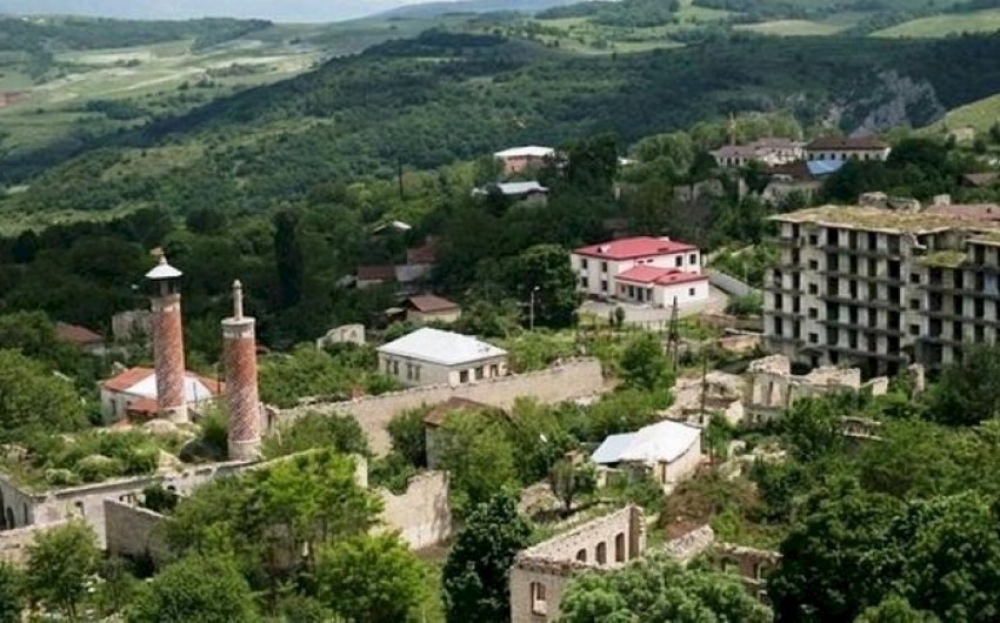
In 2022, the Azerbaijani people will celebrate the 270th anniversary of Shusha the foundation of which was laid by Azerbaijani Karabakh khanate’s Panahali khan in 1752. Taking into account this glorious history and in order to accelerate the restoration of Shusha, President Ilham Aliyev declared 2022 as the “Year of Shusha” in Azerbaijan.
On January 5, 2021, Azerbaijan’s President Ilham Aliyev signed an order declaring the city of Shusha as Azerbaijan’s cultural capital. The city’s new status came months after its liberation from Armenia’s decades-long illegal occupation on November 8, 2020.
Shusha was declared as the cultural capital of Azerbaijan in order to restore the city’s historical appearance, to bring its former glory to it and to reunite it with the traditionally rich cultural life, as well as to promote it in the international arena as a pearl of centuries-old rich culture, architecture, and urban planning of Azerbaijan.
Shusha has historically been one of the important centers of the historical, cultural, socio-political life of Azerbaijan. However, as a result of the military aggression against Azerbaijan, Armenia occupied the city on May 8, 1992, and pursued a policy of destroying the historical and cultural heritage of Azerbaijanis in the city. On November 8, 2020, the city of Shusha was liberated from occupation and historical justice was restored.
Shusha is a key city in the Karabakh region due to its geographical location and historical significance as one of the major cultural, economic, and administrative centers of Azerbaijan.
Shusha was founded during the reign of the Azerbaijani Karabakh khanate’s Panahali khan in the 18th century. According to the historical sources, Panahali khan decided to build an “eternal and invincible fortress in a firm and impassable place in the mountains” given the unfavorable location of the previous castles. Construction of the city kicked off in 1752 at about 1,600 meters above the sea level in Karabakh and the capital of the khanate was moved to the city in 1756-1757.
Shusha has long been one of the main administrative, economic and cultural centers of Azerbaijan since its establishment by indigenous Azerbaijanis. The city has played a key role in the development of Azerbaijan’s carpet weaving industry. Shusha was the Karabakh region’s carpet-weaving center in the second half of the 19th century and carpets produced in Shusha have been exported to global markets in the late years of the same century. The ornamental and plot groups of Shusha carpets defined the mainline trend in local carpet-weaving. Shusha’s carpet-weavers took part and won awards in an international show in Paris in 1867.
At the end of the 18th century, Shusha became one of the important trade centers in the entire South Caucasus region. Merchants brought various goods to Shusha from other Azerbaijani cities such as Baku, Sheki, Nakhchivan and Ganja. The cities of the Ottoman Empire, Russia, Iran, India, and European countries played an important role in Shusha’s trade relations. Merchants from Shusha were regular participants at the famous fairs in Leipzig, Germany, and Nizhny Novgorod, Russia.
Shusha is to Azerbaijan what Vienna is to Austria and Naples is to Italy in terms of music.
The city is well known as “the temple of Azerbaijani music” and the conservatory of the South Caucasus. The founding father of Azerbaijani composed classical music and opera, Uzeyir Hajibeyli was born in Shusha, a city also home to world-famous Azerbaijani poet Molla Panah Vagif and poetess Khurshudbanu Natavan.
After the collapse of the Soviet Union in 1991, Armenia launched a military campaign against Azerbaijan that lasted until a ceasefire was reached in 1994. Armenia occupied 20 percent of Azerbaijan’s internationally recognized territories, namely the Nagorno-Karabakh region, including Shusha, and seven adjacent districts. Over 30,000 ethnic Azerbaijanis were killed and one million others were expelled from their lands in a brutal ethnic cleansing policy conducted by Armenia.
The Azerbaijani army restored the country’s sovereignty over the city of Shusha on November 8, 2020, during the 44-day war from September 27 through November 9, 2020. Azerbaijani forces liberated more than 300 settlements, including the cities of Jabrayil, Fuzuli, Zangilan, Gubadli, and Shusha, from nearly 30-year-long illegal Armenian occupation. The liberation of Shusha played a crucial role in the retreat of Armenia’s forces and cessation of hostilities in a ceasefire on November 10, 2020. Armenia also returned the occupied Aghdam, Kalbajar, and Lachin districts to Azerbaijan as part of its obligations it took under the ceasefire agreement.
 Oval Useful news from Azerbaijan and Caucasus
Oval Useful news from Azerbaijan and Caucasus


